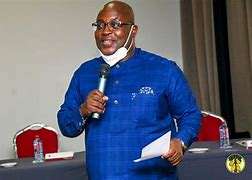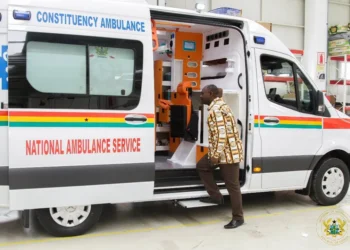In a year marred by economic uncertainties and global challenges, Ghana’s Cocoa Marketing Board (COCOBOD) finds itself struggling with a difficult financial landscape. The recent signing of an $800 million syndicated loan, while offering a temporary lifeline, underscores the profound struggles faced by one of the world’s leading cocoa producers.
Traditionally, Ghana relies on an annual syndicated loan, often agreed upon at the beginning of the cocoa season in September, to finance its cocoa bean purchases from local farmers. However, the 2023 loan has encountered unprecedented delays, mirroring the broader economic crisis that has engulfed the West African nation.
Ray Ankrah, COCOBOD’s Deputy CEO (Finance & administration), expressed the severity of the situation.
“I joined COCOBOD in 2018, and this is the hardest transaction we have had.”
Ray Ankrah
The protracted negotiations and challenges associated with finalizing the $800 million loan reveal the depth of the economic crisis confronting Ghana.
The delay in securing the loan is emblematic of the broader economic struggles faced by Ghana, which is currently navigating its most severe economic downturn in a generation. The nation is concurrently working towards restructuring its bilateral and commercial debts, adding layers of complexity to its financial predicament.
The terms of the loan, which were presented to Ghana’s parliament last month, include an interest rate of nearly 8%. This encompasses the one-month Secured Overnight Financing Rate (SOFR), currently around 5.3%, along with a margin of 2.65%. Despite the parliamentary approval in November, the drawn-out process has underscored the formidable challenges inherent in securing financial support amidst economic turmoil.

The drawdown of $600 million expected by the end of this week, with an additional $200 million anticipated by mid to late January, is a critical infusion of capital for Ghana. Beyond addressing the immediate financial needs of COCOBOD, this injection is poised to bolster the country’s reserves, providing a timely boost to Ghana’s economic stability.
Professor Agyapomaa Gyeke-Dako, an economist at the University of Ghana, points out that the loan could have positive implications for the local cedi currency. By mitigating dollar demand, the loan may alleviate some of the economic pressures resulting from the slow progress in restructuring Ghana’s bilateral debt.
Compounding the economic challenges are concerns about Ghana’s cocoa harvest for the 2023/24 season. COCOBOD’s official forecast of approximately 800,000 tons clashes with industry estimates, which suggest a more modest harvest of around 600,000 tons. The global impact of poor weather conditions on cocoa crops further exacerbates the strain on Ghana’s vital cocoa industry.
Notably, the $800 million loan represents one of the lowest amounts secured in the past decade. This reduced figure underscores the broader economic constraints and the need for prudent financial management amid global uncertainties.
Despite the hardships faced by Ghana’s cocoa industry, there is a glimmer of hope in the form of record-high global cocoa prices. COCOBOD’s plan to capitalize on these prices by selling part of the country’s crop on the spot market reflects a strategic approach to navigating challenging market conditions.
To prevent the reoccurrence of delayed syndicated loans and economic challenges, Ghana should focus on building a robust and diversified economy. Implementing sound fiscal policies, investing in key sectors beyond cocoa, and prioritizing economic resilience will strengthen the nation’s financial standing.

Additionally, enhancing transparency, efficiency, and timely decision-making in financial transactions will contribute to a more stable economic environment. Collaborative efforts between government and financial institutions, coupled with proactive measures to address emerging economic issues, will fortify Ghana’s resilience against future downturns, fostering sustainable growth and stability.
Furthermore, promoting effective debt management strategies, including continuous evaluation of borrowing terms and prudent debt repayment plans, will mitigate financial pressures. Strengthening partnerships with international organizations and fostering a conducive business environment to attract foreign investment will also diversify revenue streams, reducing dependence on a single sector. This holistic approach ensures a more resilient and adaptable economic framework, guarding against future crises.
READ ALSO: NAPO Urges Public To Ignore “Propaganda” – The Vaultz News





















